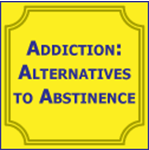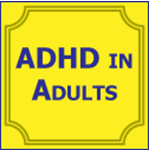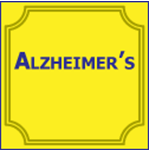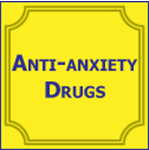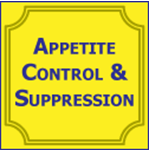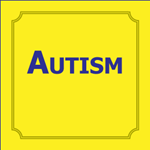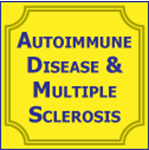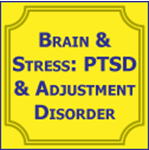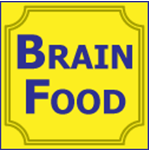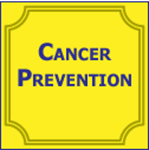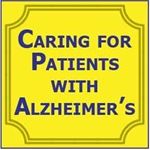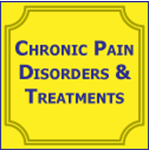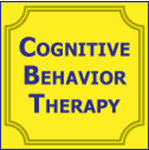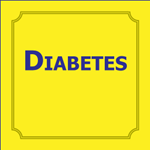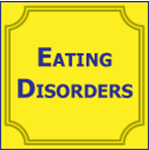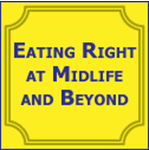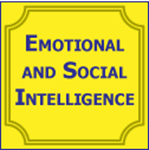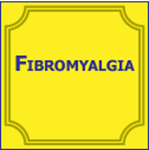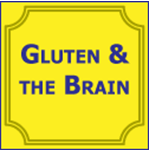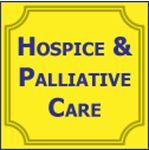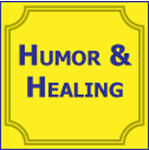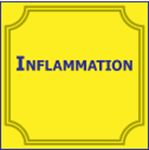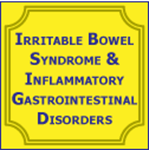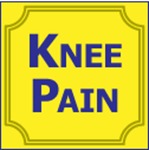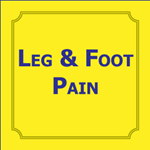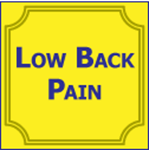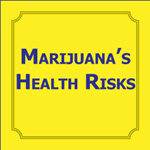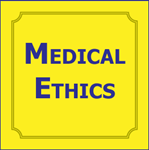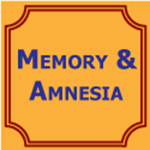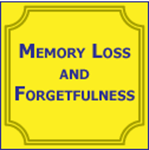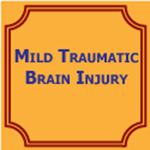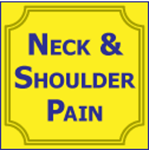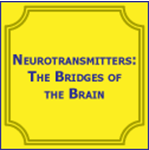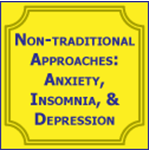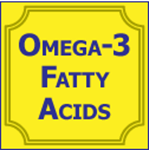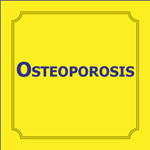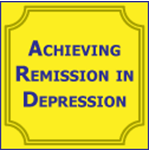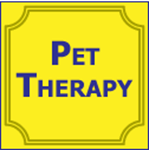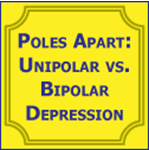You have no items in your shopping cart.
Booklets with Test
Addiction: Alternatives to Abstinence
Identifies the three major treatment models for addictive behaviors and a brief history of each: (a) the moral model, (b) the medical model, (c) the harm-reduction model. Describes the most recent research on the effectiveness of abstinence and harm-reduction addiction treatment programs and who each approach is best suited for. Lists protective behavioral strategies (PBS) used in moderating alcohol use among college students. Identifies the risk factors for “overdose” and list the strategies for prevention. Describes approaches to treating opioid dependence and the benefits and drawbacks of each.
$30.00
ADHD In Adults
Identifies the rates of incidence and essentials of diagnosis of Attention Deficit Hyperactivity Disorder. Discusses the issues and controversies in diagnosis of adult ADHD. Describes the clinical essentials of differential diagnosis of ADHD in adults and presentations of other disorders with similar core symptoms. Identiies medications (stimulants and non-stimulants) that may be used in pharmacological management of ADHD in the adult population. Discusses the recent developments in the field of non-stimulant medications for adult ADHD, including cholinergic drugs and atypical antidepressants.
$30.00
Alzheimer's
Describes Alzheimer’s disease. Identifies the 10 warning signs of Alzheimer’s disease. Explains the benefits of early diagnosis of Alzheimer’s disease. Enumerates the goals of Alzheimer’s treatment.
$30.00
Anti-Anxiety Drugs
Outlines the diagnostic issues of various anxiety disorders including GAD, panic disorder, OCD, and social phobia. Identifies differentials of anxiety disorders and the nomenclature of phobias and related conditions. Describes commonly used pharmacological agents and their interactions, side effects, and expected effects. Addresses the issue of co-administration of these drugs with dental drugs. Identifies approaches to co-management of anxiety and depression, anxiety and alcohol-related disorders, and acute toxicity of benzodiazepines.
$30.00
Antioxidants: A Balancing Act with Free Radicals
Identifies what free radicals and antioxidants are, their functions, and how they interact. Reviews the current views on biochemistry and clinical features of vitamin E and vitamin C, as well as other commonly consumed antioxidants. Discusses the most practical strategies for managing deficiencies and toxicities of antioxidant vitamins. Discusses the current scientific debate over the role of antioxidants in a variety of conditions, including age-related macular degeneration.
$30.00
Appetite Control & Suppression
Describes how appetite is normally regulated. Cites how appetite can become dysregulated and contribute to weight gain and obesity. Describes a range of factors that can influence appetite control. Identifies lifestyle interventions that can be used to regain appetite control. Identifies the role of appetitesuppressing medications.
$30.00
Autism - 3 Hours
Describes the differences between the previous Diagnostic and Statistical Manual of Mental Disorders (DSM-IV), and the current one (DSM-5) in terms of how autism, autism spectrum disorder (ASD) and related disorders are viewed and diagnosed. Identifies the physiological, familial, and psychological issues in the clinical diagnosis of autism spectrum disorder. Identifies the issues of toxicity from heavy metal (mercury, lead) and other pathogenic factors in the development of autism spectrum disorder. Identifies medications used in management of various clinical resentations and comorbidities of autism spectrum disorder. Discusses appropriate nonpharmacological (general health, psychological, and behavioral) approaches to the treatment of autism spectrum disorder.
$30.00
Autoimmune Disease & Multiple Sclerosis - 3 hours
Identifies the causes and types of autoimmune disease. Identifies common symptoms of multiple sclerosis. Describes the issues in diagnosing multiple sclerosis. Identifies possible courses of multiple sclerosis disease progression. Identifies available therapeutic options, including disease-modifying drugs, therapeutic agents for alleviating symptoms, and behavior modifications that may benefit a multiple sclerosis patient.
$30.00
Brain & Stress: PTSD & Adjustment Disorder
Explains the principles of diagnosis and differential diagnosis of Adjustment Disorder, the controversy that surrounds its classification, and its proper place in the hierarchy of psychiatric disorders. Identifies helpful strategies for patients with Adjustment Disorder. Outlines the issues of diagnosis and management of Post-Traumatic Stress Disorder. Describes Shared Psychotic Disorder and its diagnosis and treatment. Describes ways to cope with stress and recommends appropriate coping strategies to patients.
$30.00
Brain Food
Discusses how foods and vitamins may improve memory and brain function. Describes how the DASH and Mediterranean diets may play a key role in brain health. Explains how food choices and supplements may play a role in Alzheimer’s disease and brain aging. Describes an optimal diet for brain health.
$30.00
Cancer Prevention
Describes the role tobacco plays in various kinds of cancers. Identifies the impact of estrogens, and viral and bacterial pathogens, on the development of cancer. Describes the lifestyle and dietary changes that can help prevent the development of cancer. Discusses the benefits and drawbacks associated with some of the tools used to screen for cancer. Identifies the role of chemopreventive agents, and how they may be able to curtail the onset of cancer, or its recurrence.
$30.00
Caring for Patients with Alzheimer’s
Lists methods to assist patients with memory and communication problems. Lists strategies to assist patients with mood and behavioral problems. Identifies strategies to assist patients with physical and personal hygiene problems. Identifies approaches to mealtime and nutritional health. Identifies strategies for handling exercise, socializing, and other activities. Discusses when and how to consider alternative living arrangements including respite care. Describes the legal and financial concerns that need to be addressed.
$30.00
Chronic Pain Disorders & Treatments
Describes some of the effects of chronic pain on the brain. Lists the major chronic pain disorders and their treatments. Explains the differences between migraine and tension headaches. Identifies the major sources of back pain and their effective treatments. Describes the differences between trigger points and tender points. Lists methods and techniques of lowering the risk of chronic pain disorders. Discusses the concept of multidisciplinary pain management. Describes the applications of non-pharmacologic pain treatments like cognitive-behavioral therapy, biofeedback, and meditation.
$30.00
Cognitive Behavior Therapy
Identifies the major components of cognitive behavioral therapy and the causative relationship between environmental events, thoughts, emotions, and behavior. Lists the common types of flawed and irrational beliefs that create depression, anxiety, and stress. Describes the “ABC” process of converting irrational thinking into rational thinking. Describes cognitive-behavioral treatment strategies for depression and anxiety. Defines “allostasis” and “allostatic load” aspects of stress and describe the “Stress Inoculation Training” approach to stress management.
$30.00
Diabetes
Describes the key features of prediabetes, type 1, type 2, and gestational diabetes. Identifies the hormones involved in blood glucose control. Identifies the main macrovascular and microvascular complications of diabetes and describe their underlying pathology. Describes the diagnostic tests for diabetes and outline the values defining normal and abnormal results. Outlines the pharmacologic agents and lifestyle changes in the management and prevention of diabetes.
$30.00
Eating Disorders
Identifies the proper classification, co-morbidities, and diagnostic approaches to eating disorders. Outlines the etiology and prognosis in eating disorders. Discusses the issues of oromaxillary pathology observed in eating disorders. Describes the various aspects of effective management of eating disorders. Explains the unhealthy weight obsession, self-image issues, and erroneous beliefs about food, diet, weight, and health.
$30.00
Eating Right at Midlife & Beyond
Recognizes the physiological changes that typically occur with age. Describes the programmed and error theories of aging. Recognizes the contribution of genetics to individual lifespan. Explains oxidative stress and the role of antioxidants in combating it. Lists the sources of antioxidants and the foods that provide the best antioxidant benefits. Outlines a healthy eating plan for older adults.
$30.00
Emotional & Social Intelligence
Explains the concept of emotional intelligence. Describes the relationship between emotions and the brain. Outlines how to use emotional intelligence to reduce negative moods. Explains the concept of social intelligence and its components. Identifies the neural circuitry underlying interpersonal behavior. Describes educational programs designed to heighten emotional and social intelligence.
$30.00
Emotions, Moods, & Pain
Lists and describe the six basic emotions that have unique facial expressions. Explains the difference between emotions and moods. Discusses the relationship between emotions, moods, and pain. Identifies brain structures and neurochemicals that play a role in both moods and pain. Discusses the relationship of pain to both acute stress and chronic stress. Lists the similarities between stress management and pain management. Identifies the similar brain areas involved in both physical and emotional pain. Explains the interactions between anxiety disorders, depression, and pain. Discusses cognitive behavioral therapy and its role in pain management.
$30.00
Fibromyalgia
Identifies the issues in the pathogenesis of fibromyalgia as well as controversies regarding the clinical presentations of this condition. Reviews the differential diagnosis of fibromyalgia, including differentiation from myofascial pain syndromes, chronic fatigue syndrome (CFS), irritable bowel syndrome, and other conditions. Identifies treatment regimens and management options for fibromyalgia, including “integrative” treatments (exercise and herbal and over-the-counter remedies). Explains to patients the role of sleep disorders in the pathogenesis of fibromyalgia and in the clinical management of this condition.
$30.00
Gluten & the Brain
Discusses the role of gluten in celiac disease and non-celiac glucose sensitivity. Lists the main food sources of gluten. Identifies the neuropsychiatric components of the gut-brain link to gluten sensitivity. Describes the possible role of the microbiome in gluten sensitivity. Lists the components of a gluten-free diet. Identifies the potential disadvantages of eliminating gluten from the diet.
$30.00
Hair & Nails
Describes the patterns and causes of alopecia and hirsutism. Discusses the evaluation and possible treatments for hair loss and hirsutism. Describes changes in nail color, shape, and texture that indicate underlying illness. Lists medications which can cause hair or nail abnormalities. Discusses practical strategies for maintaining healthy hair and nails.
$30.00
Hospice & Palliative Care
Discusses the goals and challenges involved in palliative care. Lists key aspects of addressing advanced medical directives, do-not-resuscitate (DNR) orders, mechanical ventilation, and tube feedings at the end of life. Describes major symptoms encountered in terminal illness and treatment options. Outlines common sources of mental, emotional, and spiritual suffering at the end of life and measures to ease them. Identifies key factors to improve communication with the patient and family members and ease caregiver stress.
$30.00
Humor & Healing
Describes the different definitions of humor. Identifies the various theories of humor. Discusses the physiology and therapeutic effects of laughter. Discusses the use of humor in health care settings and the role of humor for health care professionals. Defines the relationship between children and humor and the elderly and humor. Identifies some strategies for adding humor to health care practices.
$30.00
Inflammation
Inflammation, in its broadest sense, is the body’s response to tissue injury. Acute inflammation is typically of short duration, is nonspecific, and may be triggered by any injury. On the other hand, when the inflammation has a slow onset and persists for weeks or months it is referred to as chronic. A major difference between acute and chronic inflammation is that the former is restricted to a specific tissue or organ, whereas the latter affects the lining of the blood vessels throughout the body. In this sense, chronic inflammation is systemic. Chronic, systemic inflammation has been implicated as a major causative factor for several major diseases, including cardiovascular disease, retinopathy, nephropathy, and neuropathy. Detection of chronic inflammation is essential in order to prevent and control these disease processes. This course is designed to help clinicians understand the underlying physiological mechanisms that lead to chronic, systemic inflammation so that they may be more capable of assisting patients in avoiding unnecessary suffering, disability, and expense.
$30.00
Irritable Bowel Syndrome
Identifies the differences between functional gastrointestinal disorders and inflammatory bowel diseases. Explains the pathophysiology of irritable bowel syndrome (IBS) and identifies appropriate treatment strategies. Discusses the pathophysiology of Crohn’s disease and ulcerative collitis and identify appropriate treatment strategies. Identifies psychosocial issues in chronic gastrointestinal disorders. Discusses new research on the causes of gastrointestinal disorders, such as peptic ulcer disease.
$30.00
Keeping Balance & Preventing Falls
Lists causes and health hazards of falls. Outlines methods of preventing falls among the elderly. Lists the techniques for improving balance among the elderly. Describes procedures to prevent falls and reduce the risks of injury.
$30.00
Knee Pain
Describes the anatomical structure of the knee. Identifies the different types of knee injuries and their manifestations. Describes the difference between major and minor injuries and the causes of knee pain. Explains strategies for preventing knee pain. Discusses the medical and surgical options now available to treat knee pain/injury.
$30.00
Leg & Foot Pain
Describes how leg and foot pathologies can impair functional ability. Describes the role of different disciplines in the diagnosis
and treatment of leg and foot pathologies. Outlines evidence-based interventions for each condition. Identifies risk factors for each leg/foot condition. Identifies how this course will impact his/her current practice and interaction with patients, clients, and families.
$30.00
Loss of Control: Fighting Back with Full Strength
Describes the issues related to stress-induced feelings of loss of control, the physiological and psychological mechanisms behind these issues, and means of coping with them. Identifies grief-, aggression- and suicide-related trends in both society and the individual and identifies the neurobiologic mechanisms involved. Develops approaches to the rehabilitation of patients who have loss of control issues that lead to substance abuse. Identifies patients at risk for disorders that may be triggered by the feeling of loss of control.
$30.00
Low Back Pain
Defines low back pain. Describes the prevalence of this condition within the U.S. Identifies the different causes of low back pain. Describes some of the treatment approaches employed. Discuss ways to prevent low back pain.
$30.00
Marijuana's Health Risks - 3rd edition
Discusses common negative health and mental health effects of highpotency cannabis products. Names medications with which cannabanoids may adversely interact. Describes ways exposure to THC can harm young people’s development and health. Lists the characteristics of cannabis hyperemesis syndrome. Identifies the health risks of using synthetic THC products.
$30.00
Medical Ethics
Identifies and discusses the principles of medical ethics. Defines and distinguishes between ethics, morals, and values. Identifies the ethical obligations in a clinician-patient relationship. Explains the issues surrounding patient consent, including informed consent, voluntary consent, and competent consent. Discusses ethical principles in preserving patients’ confidentiality, including the requirements of the Health Insurance Portability and Accountability Act (HIPAA). Explains the legal documents that apply to end-of-life health care decisions and the ethical principles that apply to the right-to-die controversy. Identifies the core values and code of ethics as they should be applied within the medical professions.
$30.00
Meditation
Defines what meditation is. Identifies the benefits of meditation and the research supporting these benefits. Reviews the history of meditation and how it came to be popular in North America. Identifies the most popular meditation techniques. Discusses how to troubleshoot challenges that may arise while meditating.
$30.00
Memory & Amnesia
Explains how memories are formed by identifying the four main processes of memory and the three stages of long-term memory. Describes the important differences between declarative/explicit memory and procedural/implicit memory. Lists the current concerns and controversies surrounding eyewitness testimony and repressed memories. Identifies the principal processes and causes of psychogenic and organic amnesias. Discusses the nature of “flashbulb” emotional memories. Identifies the difference among normal forgetting, age-associated memory impairment, and mild cognitive impairment. Lists the major memory disorders that can result in amnesia and dementia. Describes methods for improving memory.
$35.00
Memory Loss & Forgetfulness
Identifies the memory changes that take place in normal aging. Discusses how mild cognitive impairment (MCI) differs from memory loss in normal aging and from dementia. Describes the cognitive and personality changes that take place in Alzheimer’s disease. Identifies cognitive and personality changes that occur in a range of non-Alzheimer’s disease dementias.
$30.00
Mild Traumatic Brain Injury
Identifies the symptoms of and recovery pattern from a mild brain injury. Describes the difficulties in making the diagnosis of mild brain injury. Lists the steps in managing sports-related mild brain injuries. Describes treatment strategies for reducing the impact of mild brain injury on cognitive, emotional, behavioral, and vocational functioning. Identifies lifestyle changes that can prevent the onset of a mild brain injury.
$35.00
Neck & Shoulder Pain
Identifies the anatomy and function of the neck and shoulder joint. Identifies the different neck and shoulder disorders. Discusses the differences in presentation of signs and symptoms among the different neck and shoulder disorders. Describes the role of imaging in the diagnosis of neck and shoulder disorders. Lists surgical and non-surgical treatment options for these disorders. Discusses recent advances in joint replacement surgery (arthroplasty) and artificial disc replacement.
$30.00
Neurotransmitters: The Bridges of the Brain
Identifies the importance of neurotransmission for higher cognitive functions of the human brain. Outlines known neurotransmitters and their interplay in the brain as well as the influence of various neurotransmitters on thought, mood, and emotions. Identifies the various pharmaceutical and alternative remedies that influence the function of neurotransmitters. Discusses possible ways to optimize patient management and minimize of drug interactions, including those with medications used in dental practice.
$30.00
Non-traditional Approaches: Anxiety, Insomnia, & Depression
Identifies and describe cognitive behavioral therapy techniques used in treatment of insomnia, depression, and anxiety. Discusses how existing communication technology expands psychotherapeutic treatment options. Lists reasons why many people with anxiety disorders never seek medical help. Discusses how non-traditional approaches can improve patient care and outcomes.
$30.00
Omega-3 Fatty Acids
Identifies essential fatty acids and their metabolites, including eicosanoids, and the beneficial role fatty acids play in maintaining health. Describes clinical implications of omega-3 fatty acid deficiency and issues surrounding supplementation with these compounds. Discusses possible clinical benefits of supplementation with omega-3 fatty acids for various conditions, including neurologic, cardiovascular and immunologic pathology. Identifies issues related to mercury contamination of food sources, including fish and other seafood, and proper dietary recommendations for various categories of patients, including pregnant women, patients with essential fatty acid deficiencies, and patients with neurologic concerns.
$30.00
On Loss & Grief
Discusses the clinical study of grief from classical to modern times. Identifies emotional, cognitive, behavioral, social, and physical responses to loss. Describes resilience to loss and explain what may increase the likelihood of this response. Discusses the role of grief counseling and when it may be useful. Describes an intervention model for dealing with loss and grief. Explains the differences between normal and complicated grief. Discusses the treatment of grief in children and adolescents.
$30.00
Osteoporosis
Describes the signs and symptoms of osteoporosis and its main risk factors. Discusses the role of genetics, menopausal status, medical status and medication use as causative factors. Discusses the methods of diagnosing the disease and recommendations regarding the timing and use of tests for bone mineral density. Identifies the role of diet and exercise in the prevention and treatment of bone loss. Discusses the current research on hormone therapy in prevention. Discusses different treatment options including drug therapy, physical therapy and surgery.
$30.00
Paradise Regained: Achieving Remission in Depression
Identifies pharmacological, herbal, and integrative approaches useful in remission-oriented management of unipolar depression/major depressive disorder and bipolar disorder. Outlines the issues of neurotransmitter-affecting medications, associated side effects, and interactions with other medications, including drugs used in dental practice. Discusses the optimal strategies for treatment augmentation in cases of treatment-resistant depression. Discusses experimental treatments for depression (e.g., transcranial magnetic therapy and vagus nerve stimulation) with patients.
$30.00
Pet Therapy
Describes the aspects of the relationship between humans and their pets that contribute to health and well-being. Cites the scientific evidence on the relationship between pets, life, and health. Identifies the psychological basis for the relationship between humans and their pets. Describes the varying roles of pets as therapeutic agents.
$30.00
Poles Apart: Unipolar vs. Bipolar Depression
Identifies the basic neurophysiology, pathogenesis, etiology, and diagnosis of affective unipolar disorder/major depressive disorder (UD/MDD) and bipolar disorder (BD). Discusses the involvement of various chemical imbalances in these affective disorders, including neurotransmitters and neurohormones such as serotonin, norepinephrine, dopamine and cortisol. Lists the differential diagnosis of these conditions and the management of both disorders. Describe the spectrum of available pharmacological, psychotherapeutic, and experimental therapies for both conditions.
$30.00
Positive Psychology
Describes the origin and goals of the new “positive psychology.” Lists the factors that contribute to happiness and life satisfaction. Discusses the research findings related to happiness and life satisfaction. Lists several activities and exercises that can enhance happiness and life satisfaction.
$30.00
Probiotics
Describes probiotics and their relationship to bacteria, yeasts, parasites, and viruses. Discusses how probiotics affect the healthy immune system. Explains antibiotics and antibiotic resistance. Describes how probiotics can be helpful in preventing and treating certain diseases and conditions. Identify good food sources of probiotics and prebiotics. Identify how to select probiotic supplements considering their risks and benefits. Describes how healthcare professionals can use this information to improve patient education and outcomes.
$30.00
Psychology of Bullying
Defines various forms of bullying, associated behavioral traits, and prevalence. Describes individual, family, and social factors related to child and youth bullying. Explains bias-based bullying including race, ethnicity, gender, sexual orientation, disabilities. Discusses cyber bullying and associated problems. Describes bullying within friendships. Discusses intervention and treatment strategies for child and youth bullying. Outlines the problem of office and workplace bullying and how to respond to it.
$30.00
Reducing Stress
Explains how the body responds to and processes stress. Identifies the impact of stress on risk for heart disease and the physiological mechanisms that may mediate this link. Describes the role stress may play in increasing risk for health problems across the life span. Identifies a number of interventions for reducing stress.
$30.00
- 1
- 2

